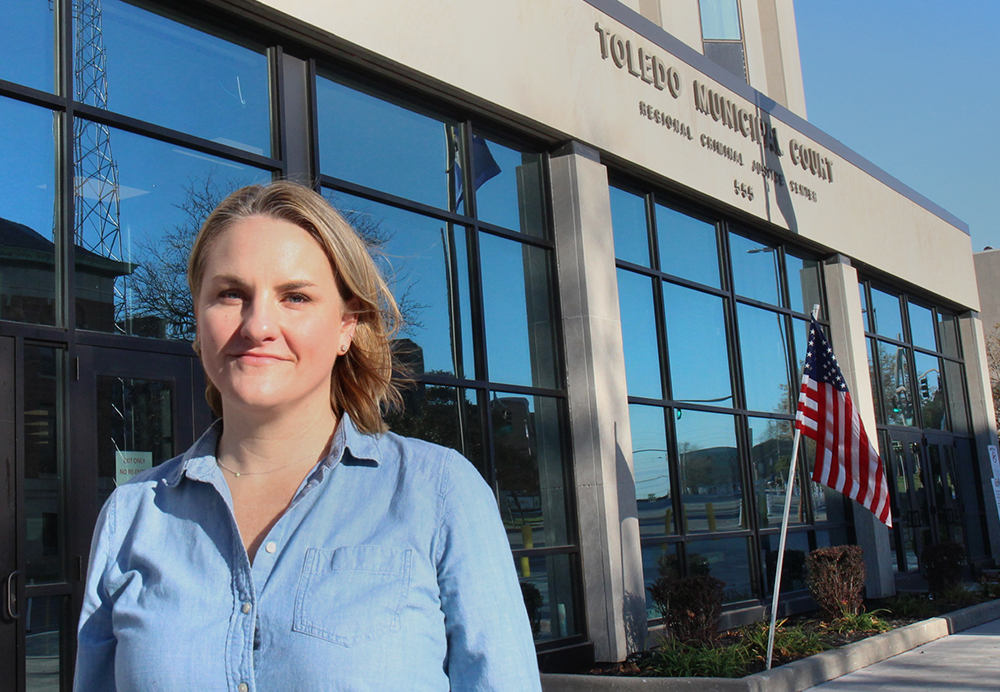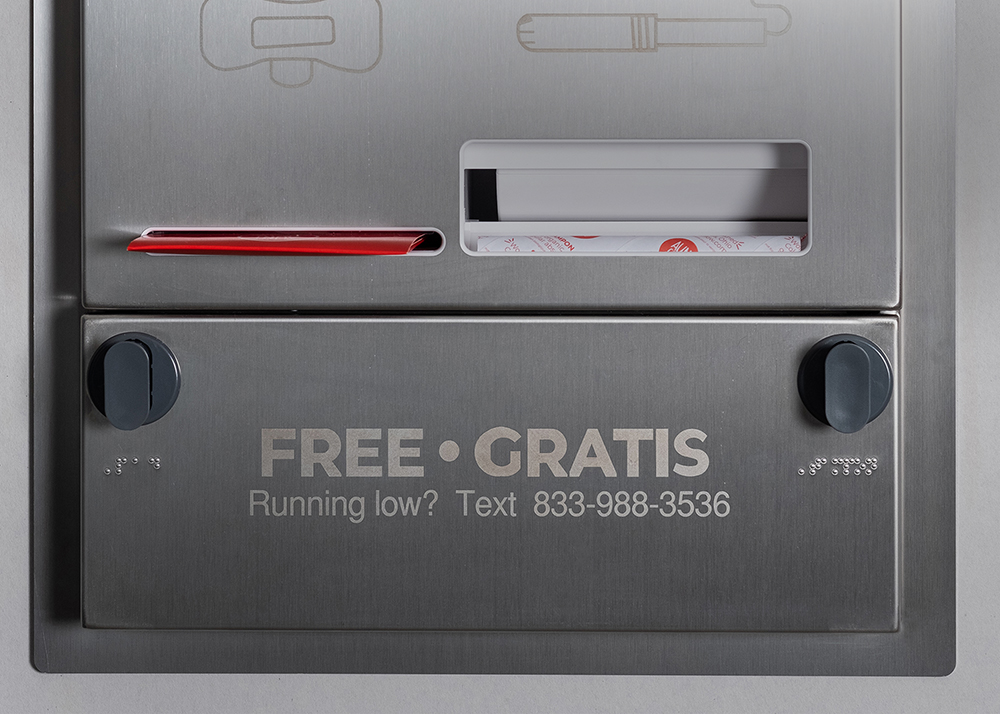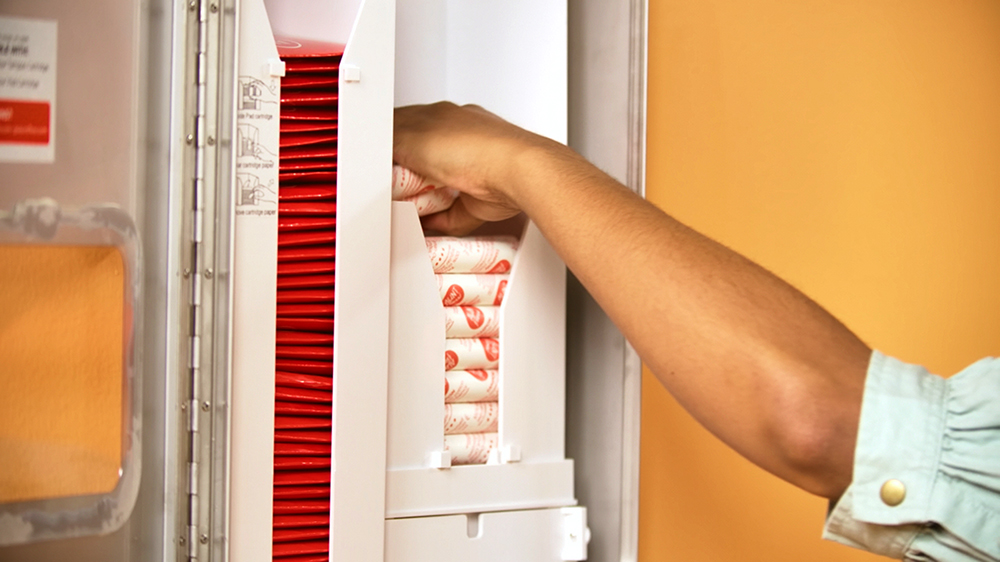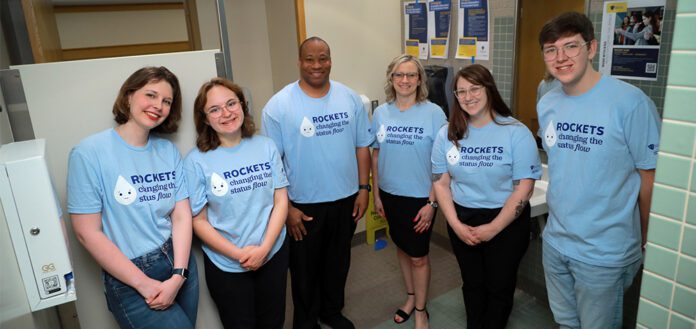Toledo City Council funds program for free menstrual products
TOLEDO – Free period care products are coming soon to public restrooms in municipality-owned buildings in Toledo, the latest step forward in a growing “period equity” movement.
In October, Toledo City Council voted to allocate $50,000 toward a pilot program to install dispensers with free menstrual products in more than 100 high-traffic bathrooms.
“We kind of wanted to start strategically with the high volume bathrooms, and then just see how well it goes,” says Toledo City Council president Carrie Hartman, who proposed the initiative with council members Nick Komives and Brittany Jones.
“They’ll be at parks; they’ll be at community centers. One of the first places I wanted to put them in was the Safety Building and Toledo Municipal Court because those get a lot of volume,” she said. “There are also women who work in those buildings, too, so this is not just for the public; it’s for our employees, as well.”

Hartman says the proposal was inspired by research compiled by Solace Health and Wellness, a Toledo community organization that provides education, advocacy and outreach to promote sexual and reproductive health.
A 2024 survey by U by Kotex found that two in five people who need period supplies have struggled to buy them, and that a third of girls and women who menstruate had to miss school, work or a similar activity in the previous year because they did not have the products to manage their periods.
The Alliance for Period Supplies reports that one in six girls and women between the ages of 12 and 44 lives below the federal poverty line.
Katie Garber, who serves in a volunteer capacity as director of Menstrual Justice Programming for Solace, notes that Supplemental Nutrition Assistance Program (SNAP) and Women, Infants and Children (WIC) do not cover menstrual products. “There’s no government program that provides hygiene supplies, including menstrual hygiene,” said Garber.
Lack of access to these products leads to challenges with participation in work, school and community life. “It can lead people to use unsanitary items, which can cause a lot of health problems and infections,” Garber added.


Menstrual hygiene as a human right
In 2020, Garber began collecting donations of period products on her own to donate to homeless shelters and other organizations. Since she began working through Solace, this initiative has grown to involve businesses and organizations that host collection drives and period packing parties to create kits for community members in need.
“What we believe is menstrual hygiene is a human right. The main goal is just getting products to people who need them,” said Garber. “We’re trying to end the stigma around period products and menstruating.”
Hartman says the city already stocks its bathrooms with toilet paper, towels and, in some case, toilet seat covers. “Why not just go a step further and supply them with menstrual products, too?”
Toledo is not the first city to address the issue of period equity. Hartman cites Columbus and Cleveland as cities that have passed similar legislation. In 2022, Ann Arbor enacted the country’s first law requiring menstrual products in all public restrooms.
Schools, colleges and universities are also supporting the movement. Ohio passed a law in October 2023 requiring all schools with girls in grade six to 12 to provide free menstrual products.
Last spring, The University of Toledo began offering free period products in all academic buildings on the Main and Health Science campuses through an initiative spearheaded by the student government and UToledo’s Catharine S. Eberly Center for Women.
Danielle Lutman, associate director of the Catharine S. Eberly Center for Women, said no issues or challenges have arisen since the program began, and many students have shared their gratitude for it.
I was just at a conference yesterday and folks from all over the country were talking about how their campuses are starting to work on this.
Danielle Lutman
Hartman says the proposal received little pushback when it was introduced to Toledo City Council in October. “The only questions were how much money and where? So, it was a pretty easy decision,” she said.
The city is still in the contract and ordering process for the dispensers, which will be provided through Aunt Flow, a company founded by Sylvania native Claire Coder. “Aunt Flow has great statistics, and they also have great branding to kind of make people aware of why those dispensers are there, so they don’t really see a whole lot of vandalism or theft,” says Hartman.
The one-year pilot program will begin with dispensers in about half of the city’s bathrooms, but the plan is to eventually expand to all.
“I see this as the same kind of line item as toilet paper and paper towels,” she said. “I think we really just are going to have to increase that line item, and I don’t think it will be that big of a percentage.”
“I think the impact is pretty great, when you think about women who might not have access to menstrual products now can get them in a park, or get them from a community center,” she added.





















